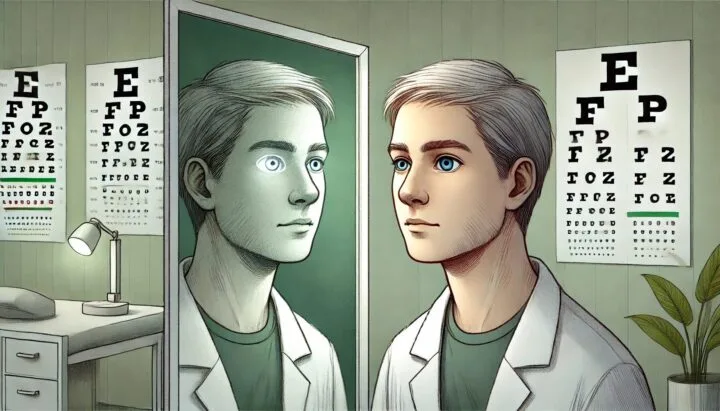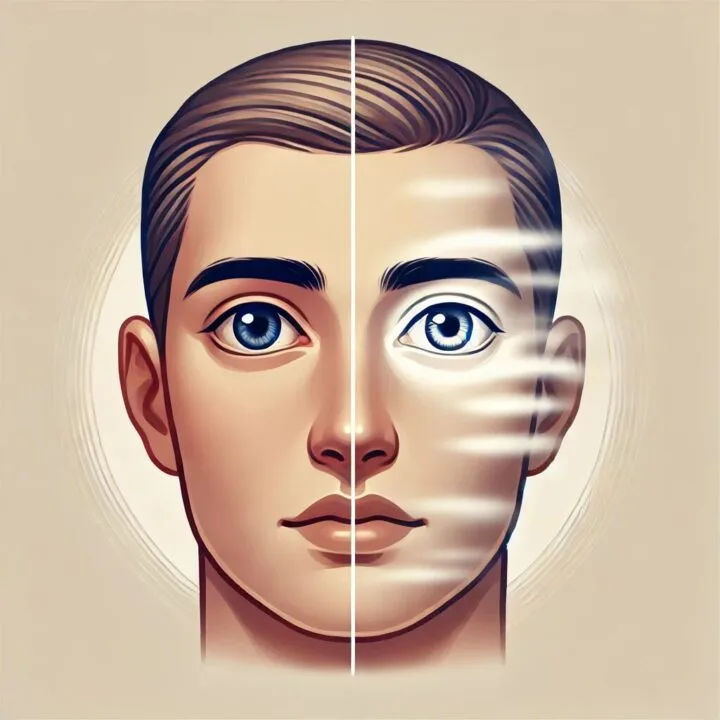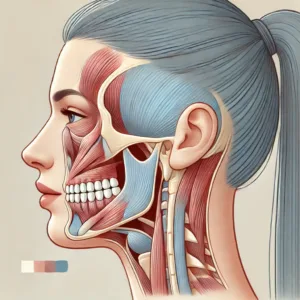What Are the Neurological Causes of Speech Disorders in Adults?
Table of Contents

What Are the Neurological Causes of Speech Disorders in Adults?
What Are the Neurological Causes of Speech Disorders in Adults? 🧠🗣️
Ever had moments where your thoughts were clear, but the words just wouldn’t come out? Maybe a loved one is suddenly slurring speech or struggling to form complete sentences after a stroke. These are not just flukes. They might be signs of neurological speech disorders — and they’re more common than you think.
Let’s face it: the brain is a speech machine. When it glitches due to injury or disease, speech is one of the first things to suffer. And when your voice feels hijacked by something out of your control, it’s frustrating, scary, and isolating.
The good news? Understanding the neurological causes is the first step toward reclaiming clarity. In this post, we’re breaking down the brain-based causes of adult speech disorders — and how to spot them, treat them, and live beyond them. Let’s dig into what’s really happening inside your head.
How Does the Brain Control Speech? 🧬
Before we dive into disorders, let’s get the basics: how does speech even work in your brain?
🧠 Broca’s Area — Handles speech production.
🧠 Wernicke’s Area — Processes language comprehension.
🧠 Motor Cortex — Controls movement of speech muscles.
🧠 Cerebellum — Fine-tunes coordination and timing.
🧠 Basal Ganglia — Regulates smooth movement.
All these areas must work in sync. One glitch, and your speech may slow down, slur, or disappear entirely.
What Neurological Conditions Cause Speech Disorders? ⚠️
Many neurological diseases affect these brain areas. Let’s break them down.
✅ Stroke (Cerebrovascular Accident)
🔹 How it affects speech: A stroke cuts off blood to brain areas that control language and muscle movement.
🔹 Resulting disorders:
- Aphasia (trouble understanding or forming language)
- Dysarthria (slurred or weak speech)
- Apraxia of Speech (brain can’t plan speech movements)
🚨 Signs to watch for: Sudden slurring, inability to name objects, or trouble repeating words.
✅ Traumatic Brain Injury (TBI)
🔹 How it affects speech: Injuries from accidents or falls can damage speech-related brain areas.
🔹 Resulting disorders:
- Cognitive-Communication Disorder (issues with memory, attention, and word-finding)
- Dysarthria or Apraxia depending on damage location
⚡ Common in: Car crashes, sports injuries, or assaults.
✅ Parkinson’s Disease
🔹 How it affects speech: This progressive disorder impacts motor control and muscle strength.
🔹 Resulting disorder: Hypokinetic Dysarthria — soft, monotone voice, mumbling, fast speech.
💊 Fun fact: Lee Silverman Voice Treatment (LSVT LOUD) is designed specifically for Parkinson’s-related speech issues.
✅ Multiple Sclerosis (MS)
🔹 How it affects speech: MS damages the protective covering of nerves (myelin), disrupting brain-to-muscle signals.
🔹 Resulting disorder: Scanning Speech — broken rhythm and inconsistent tone.
🔹 Other symptoms: Fatigue, cognitive fog, and swallowing difficulties.
✅ Amyotrophic Lateral Sclerosis (ALS)
🔹 How it affects speech: ALS causes progressive muscle wasting, affecting speech and breathing.
🔹 Resulting disorder: Spastic-Flaccid Dysarthria — slow, strained speech, nasal voice.
🧠 Tech tip: Augmentative and alternative communication (AAC) devices help maintain interaction.
✅ Brain Tumors
🔹 How it affects speech: Tumors in the frontal, temporal, or parietal lobes can impact language and motor control.
🔹 Resulting issues: Aphasia, cognitive delays, or loss of speech coordination.
🩺 Warning sign: Gradual change in speech clarity, memory, or emotional control.
What Do These Disorders Sound Like? 🔊
Here’s how you can spot them:
| Disorder | Common Symptoms |
|---|---|
| Aphasia | Can’t find the right words, jumbled sentences |
| Dysarthria | Slurred, breathy, or robotic-sounding speech |
| Apraxia | Knows what to say but struggles to move lips correctly |
| Hypokinetic Dysarthria | Soft, quick, monotone voice |
| Scanning Speech | Choppy rhythm, odd emphasis |
🎧 Analogy: It’s like your brain is the DJ, but the mic’s broken or the record is scratched.
How Are Neurological Speech Disorders Diagnosed? 🩺
Diagnosis = detective work done by a team: neurologists + speech-language pathologists (SLPs).
Here’s what happens:
🧪 Neurological Exam: Identifies which brain regions are affected.
🎯 Speech-Language Evaluation: Measures articulation, fluency, voice, and understanding.
📸 Imaging Scans: MRI or CT scan shows structural damage.
🗃️ Case History: Timeline, triggering events, and co-existing symptoms.
🔍 Pro tip: Don’t delay — the sooner you get assessed, the better the therapy outcomes.
What Are the Treatment Options? 💡
💬 Speech Therapy
🔹 Custom plans based on your specific disorder
🔹 Daily drills to regain motor patterns
🔹 Cognitive training if memory and comprehension are involved
🔹 LSVT LOUD for Parkinson’s patients
🔹 AAC devices for severe cases
🧘 Lifestyle and Rehab
🔹 CBT or mental health support — especially post-TBI or stroke
🔹 Support groups to boost confidence
🔹 Family education to create a supportive home environment
💊 Medical Interventions
🔹 Meds for Parkinson’s, MS, or seizures
🔹 Surgery for brain tumors or shunts
🔹 Botox for spastic dysarthria (yes, really!)
Can You Recover from Neurological Speech Disorders? 💪
YES — with effort, consistency, and support.
✅ Early intervention = best outcomes
✅ Therapy 3–5x/week = faster gains
✅ Tech tools = extra boost at home
✅ Small wins matter — one clear word today, a full sentence tomorrow
🎯 Remember: Neuroplasticity means your brain can rewire itself. Give it the tools and time it needs.
What’s the Key Takeaway? 🧠💬
Speech disorders caused by neurological issues aren’t just about speech — they’re about communication, independence, and confidence.
Whether it’s Parkinson’s, stroke, or TBI — knowing the root cause gives you power. Pair that with targeted therapy and emotional support, and your voice can come back stronger than ever.
Understanding the neurological causes of speech disorders is the foundation of effective treatment and recovery.
FAQ ❓
1. Can anxiety cause neurological speech problems?
Not directly, but it can mimic or worsen symptoms. Neurological speech disorders stem from brain or nerve damage.
2. How long does it take to recover speech after a stroke?
Anywhere from weeks to years. Depends on the stroke’s location and intensity of therapy.
3. Can MS affect speech permanently?
Yes, but symptoms can be managed with therapy and medication.
4. What type of doctor treats neurological speech disorders?
Neurologists and speech-language pathologists work together.
5. Are neurological speech disorders curable?
Many are manageable; some can improve significantly with consistent therapy.
6. Can brain surgery fix speech disorders?
Only if the disorder is due to a tumor or lesion that can be safely removed.
7. What tech helps with severe cases?
AAC devices, speech-generating apps, and voice amplifiers are often used.













Post Comment